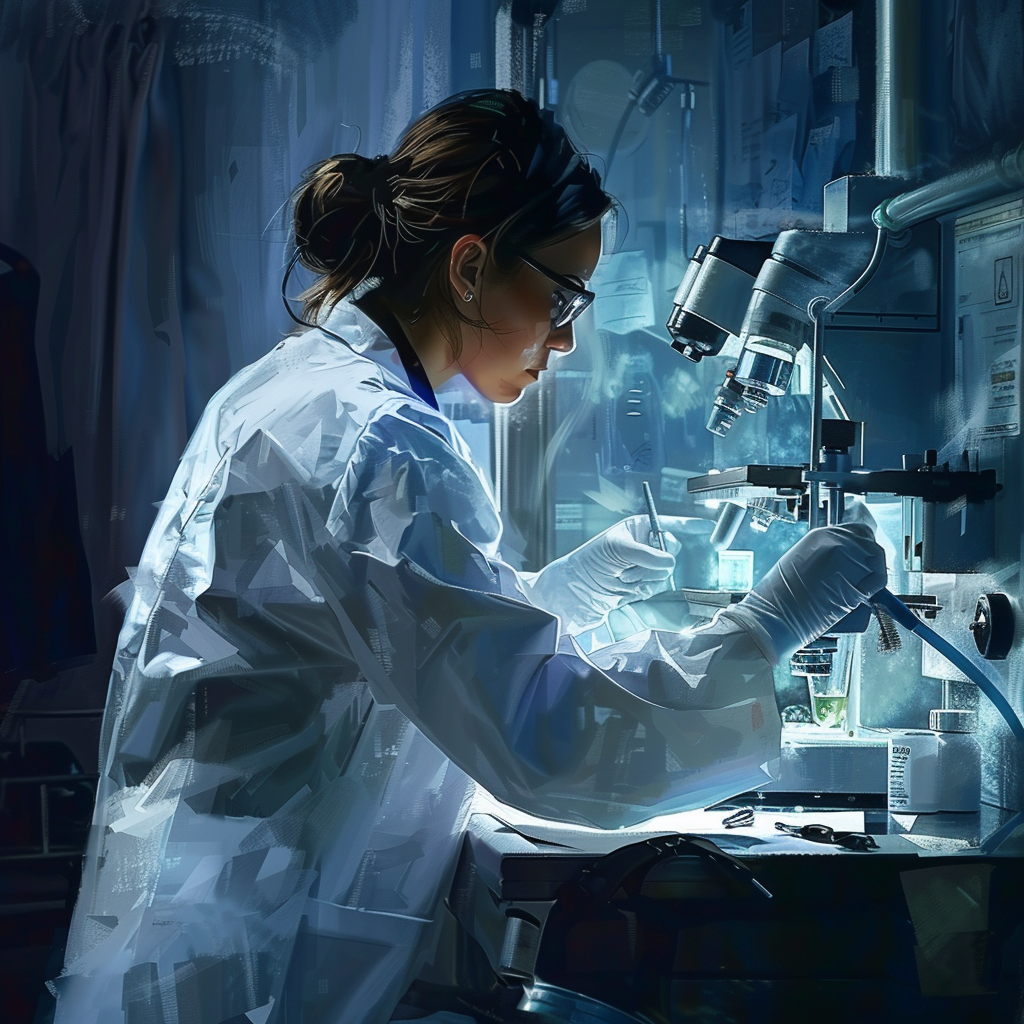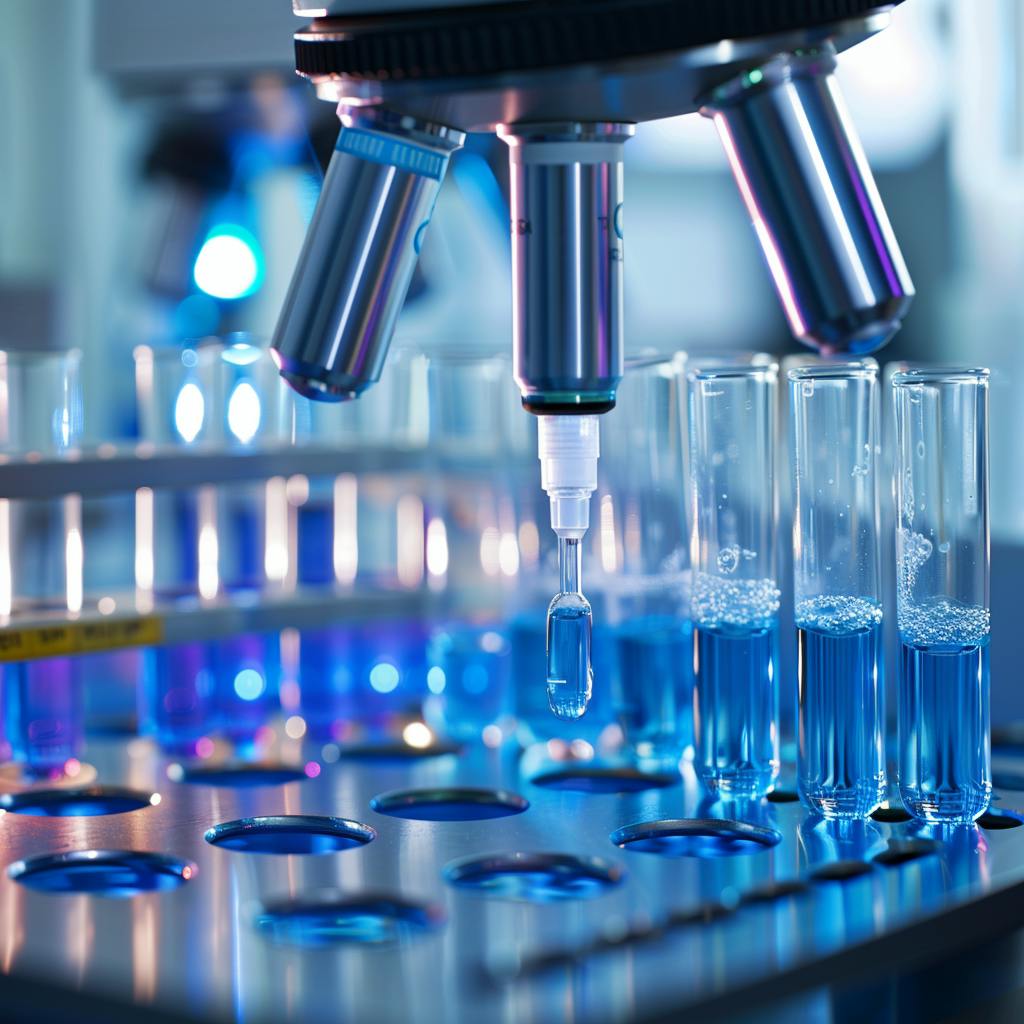
In the vast world of healthcare, behind the scenes and often unseen, exists a group of unsung heroes who play a critical role in patient diagnosis and treatment. Enter the realm of medical laboratory technologists – individuals whose expertise in analyzing bodily fluids, tissues, and cells help unlock the mysteries of diseases and pave the way for effective medical interventions. These modern-day detectives armed with microscopes and cutting-edge technology work tirelessly to decipher complex biological puzzles, making them indispensable members of the healthcare team.
Imagine a scenario where your doctor prescribes a blood test or tissue biopsy to uncover the root cause of your symptoms. It is here that the skilled hands and keen eyes of medical laboratory technologists come into play, meticulously running tests, interpreting results, and providing crucial data that guide physicians in making informed decisions about your health. While their work may go unnoticed by many, these professionals are instrumental in shaping patient care outcomes by delivering accurate and reliable diagnostic information that forms the cornerstone of modern medicine.
Introduction: Overview of medical laboratory technologist role
Medical laboratory technologists are well-trained individuals who possess a strong foundation in biology, chemistry, and various scientific principles. They must have excellent attention to detail and critical thinking skills to interpret test results accurately. Additionally, they play an essential part in ensuring patients receive appropriate treatment plans based on their findings. Their work is often unseen but significantly impacts patient outcomes and overall healthcare system effectiveness.
Education and training required
To become a certified medical lab technologist, individuals typically need to complete a diploma or bachelor's degree program in medical laboratory technology.
One key aspect of the education and training required for medical lab technologists is hands-on experience gained through clinical rotations or internships. These practical experiences provide students with valuable real-world skills and help them apply their knowledge in clinical settings. Furthermore, continued education and professional development are essential for medical lab technologists to stay current with advancements in technology and best practices in the field.
In addition to formal education, successful medical lab technologists possess strong analytical skills, attention to detail, and excellent communication abilities. The ability to work well under pressure and collaborate effectively with other healthcare professionals is also crucial for ensuring accurate test results and optimal patient care. By investing in education, training, and ongoing development, aspiring medical lab technologists can embark on a rewarding career dedicated to improving health outcomes for patients worldwide.

Duties and responsibilities in a lab setting
Working as a medical lab technician comes with a myriad of duties and responsibilities that are crucial for the efficient functioning of healthcare facilities. Among these tasks, one key responsibility is conducting various laboratory tests on patient samples to aid in the diagnosis and treatment of illnesses. This includes performing routine tests such as blood counts, urinalysis, and microbiology cultures, as well as more specialized tests like genetic testing or toxicology screenings.
Furthermore, medical lab technicians are tasked with maintaining laboratory equipment and ensuring its proper functioning through regular calibration and quality control checks. They must also adhere to strict safety protocols to prevent contamination and ensure accurate test results. Additionally, documenting all test results accurately and maintaining detailed records is essential for proper patient care and continuity of treatment. Overall, the role of a medical lab technician is critical in providing vital information to healthcare providers for making informed decisions regarding patient care.
Importance in the healthcare system
Medical lab technologists play a crucial role in the healthcare system by conducting diagnostic tests that aid in the detection, diagnosis, and treatment of diseases. They are responsible for analyzing samples such as blood, urine, and tissues to provide accurate results that guide physicians in making important medical decisions. By utilizing advanced technologies and methodologies, these professionals ensure the reliability of test results which ultimately contribute to patient outcomes. Their attention to detail and precision help identify health issues early on, leading to timely interventions and improved patient care.
Furthermore, medical lab technologists act as integral members of healthcare teams, collaborating with other healthcare professionals to develop comprehensive treatment plans based on test results. Their expertise helps streamline the diagnostic process and provides essential support for understanding disease progression and monitoring treatments' efficacy. The valuable contributions of these skilled individuals not only enhance patient care but also drive advancements in medical research and innovation. Ultimately, medical lab technologists are unsung heroes working behind the scenes to uphold the quality standards of healthcare delivery.
Advancements in technology impacting the field
One of the most significant advancements in technology impacting medical lab technologists is the rise of automation and robotics in laboratory processes. These technologies have streamlined routine tasks such as sample handling, testing, and data analysis, allowing technologists to focus more on complex analyses and patient care. Furthermore, artificial intelligence (AI) algorithms are being used to interpret test results quickly and accurately, leading to more precise diagnoses and treatment plans.
Another key development is the integration of cloud-based systems in laboratory operations. This allows for real-time collaboration between different healthcare providers, enabling faster communication of test results and facilitating more coordinated care for patients. Additionally, mobile health apps are now being utilized by medical lab technologists to track patient information, manage inventory levels, and access critical data remotely. These technological advancements not only improve efficiency within the lab but also enhance overall patient outcomes through quicker responses to healthcare needs.
Job outlook and career opportunities
As the field of healthcare continues to evolve and expand, the job outlook for medical laboratory technologists remains promising. With advances in technology driving increased demand for diagnostic testing, qualified professionals are needed to perform complex laboratory analyses. This has resulted in a steady growth of job opportunities for medical lab technologists across various healthcare settings.
Moreover, the diversity of career options available to medical lab technologists is another compelling aspect of this profession. From working in hospitals and clinics to research labs and pharmaceutical companies, individuals with a background in medical laboratory science have the flexibility to explore different paths within the field. Whether specializing in areas such as microbiology, hematology, or immunology, there are ample opportunities for professional development and specialization that can lead to fulfilling and rewarding careers in healthcare.
Conclusion: Vital role in healthcare, promising career option
In conclusion, the vital role that medical lab technologists play in healthcare cannot be overstated. These professionals are the unsung heroes working tirelessly behind the scenes to accurately analyze samples and provide crucial information for patient diagnoses and treatment plans. Their meticulous attention to detail and advanced technical skills are essential in ensuring accurate test results that influence patient outcomes.
The promising career option of a medical lab technologist offers a dynamic and ever-evolving work environment with opportunities for specialization in various areas such as microbiology, hematology, and clinical chemistry. With advancements in technology driving innovation in laboratory medicine, medical lab technologists must stay current with the latest developments to deliver high-quality results. This rewarding career path not only provides job security but also offers the satisfaction of making a meaningful impact on patient care through their valuable contributions to the healthcare team.
In essence, choosing a career as a medical lab technologist opens doors to a fulfilling profession that combines scientific expertise with compassionate care. The continuous demand for skilled professionals in this field underscores its importance in maintaining high standards of healthcare delivery. As we look towards the future of healthcare, it is evident that medical lab technologists will continue to play a pivotal role in shaping positive outcomes for patients worldwide.
